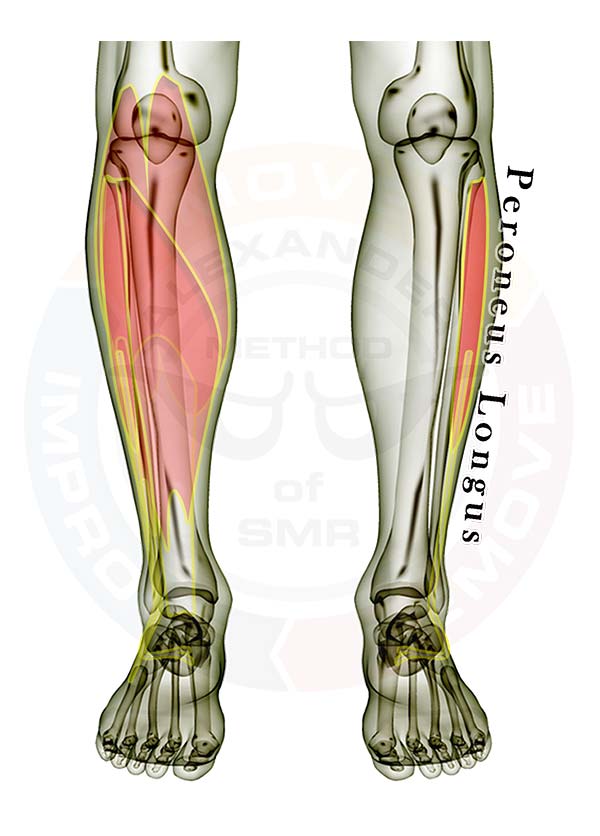
Pictured above is the peroneus longus muscle. It stabilizes your foot & ankle for balance by rotating your foot outward (everting your foot) and pulling the pinky-side of your foot toward your outer ankle bone. It attaches to the upper 2/3 of the outside of your lower leg bone from just below your knee, and its tendon runs down the outside of your ankle and attaches to many of the bones in the arch of the foot.
If this muscle locks up it will feel tight and possibly painful along the outside of your lower leg. Rarely will this muscle lock up without the peroneus brevis needing attention too. The soleus muscle ALWAYS needs attention if either of your peroneal muscles are locked up.
The peroneus longus muscle is displayed on the right leg. On the left leg the muscles are layered, showing how some of the muscles are covered by the others. All of the muscles are see-through so that you can appreciate the location and size of each muscle relative to the others.
Click here for a list of all the muscles.
Muscles that cross or attach to the hip or thigh bone (femur) and attach below the knee joint and DO NOT attach to the knee cap (patella)
Lower Leg
The following muscles attach across or below the knee.
Click the appropriate link for your interest.
Muscles that cross the knee
Muscles that pass or attach between the knee & ankle
- Gastrocnemius
- Popliteus
- Plantaris
- Soleus
- Peroneus Longus
- Peroneus Brevis
- Flexor Digitorum Longus
- Flexor Hallucis Longus
- Posterior Tibialis
- Anterior Tibialis
- Extensor Digitorum Longus
- Extensor Hallucis Longus
Good luck working out those tight knots.
If you have any questions, please post a comment. We try to respond within 24 hours.
We're here to help you get more out of your training!
